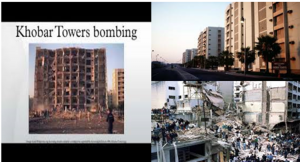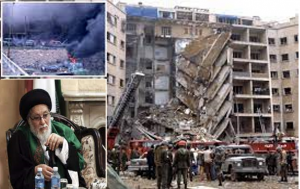Examining Iran’s Regime and Its Perpetual State of Conflict
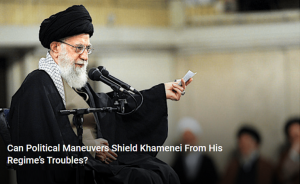
Oct.10, Iranian regime leader Ali Khamenei denied any involvement in the recent conflict in the Middle East.It was clear to all observers that Khamenei was greatly concerned about involving in the war, because of uprisings in 2022 continue to blaze across Iran.
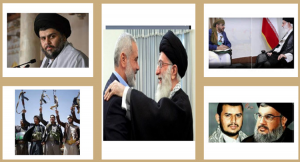
Many analysts liken Khamenei’s warmongering to an octopus, with its head in Tehran and its arms and tentacles extending to countries in the Middle East and even beyond. Since its founding, the mullahs’ regime has thrived on instigating conflicts in the region.
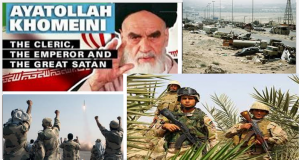
When the war with Iraq started in Sep. 1980, Khomeini praised it as a “divine gift” and a “divine blessing,” while describing peace as burying Islam. He claimed that as long as the last house in Tehran stood, the war would continue, even if it took 20 years.
This regime hijacked the Iranian revolution in 1979 and has no compatibility with the progress in Iranian society and the democratic aspirations of its people.
— MEK
PARIS, FARANCE, November 16, 2023 /EINPresswire.com/ — The official website of the People’s Mojahedin Organization of Iran (PMOI/MEK) in an article wrote that October 10, Iranian regime supreme leader Ali Khamenei denied any involvement in the recent conflict in the Middle East.
It was clear to all observers that Khamenei was greatly concerned about his regime becoming involved in the war, especially as the fires of uprisings in 2022 continue to blaze across Iran. At the same time, the threat posed by this inhumane regime to global peace is becoming increasingly evident every day.
In fact, since its founding, the mullahs’ regime has thrived on instigating conflicts in the region.
Many analysts liken Khamenei’s warmongering to an octopus, with its head in Tehran and its arms and tentacles extending to various countries in the Middle East and even beyond.
The reality is that warmongering has deep roots in the medieval nature of this regime. This regime hijacked the Iranian people’s revolution in 1979 and has no compatibility with the progress in Iranian society and the democratic aspirations of its people.
After usurping the leadership of the anti-monarchy revolution in 1979, regime founder Ruhollah Khomeini faced a potentially destructive threat. That threat was the eruption of the energy of millions of youth.
The question for Khomeini was what should he do with this immense power? It was a power that could have propelled Iran forward in all social, economic, artistic, and cultural fields, making up for a hundred years of backwardness.
Khomeini not only refused to pursue progress and development but became the enemy of any kind of progress. He knew well that in the field of progress and development, young revolutionary and progressive forces like the People’s Mojahedin Organization of Iran (PMOI/MEK) would remove the reins of power from his hands.
Therefore, the only solution was to use this immense progressive force to realize his own vision for territorial expansion. Naturally, for various political, historical, and geopolitical reasons, the first destination on this path was to wage war on Iraq.
It was with these provocations that Khomeini laid the groundwork for the war with Iraq. When the war started, he praised it as a “divine gift” and a “divine blessing,” while describing peace as burying Islam. He claimed that as long as the last house in Tehran stood, the war would continue, even if it took 20 years.
It is uncertain how long Khomeini would have continued this horrific war if the National Liberation Army (NLA) had not shattered his war machine and forced him to cede to a ceasefire with Iraq.
Regarding Khomeini’s reception of the war and his deliberate instigation of it, the statements of one of the key figures of the regime, Mohammad Javad Mozafar, who was the Director General of Foreign Media during the war, are quite revealing.
In a television interview on September 29, he said, “On April 4th, 1980, suddenly the Khomeini comes and gives a message, ‘O Iraqi tribes, rise up and overthrow this man! O Iraqi army, come and stage a coup, overthrow Saddam!’ When? April 4th, 1980, five months before the start of the war.”
He added, “The ruling establishment embraced the war based on a false analysis, and this was a mistake. It was as if we were also pushing him towards war with our slogans, provocations, and actions. Khomeini and his surrounding truly believed that if the Iraqi people willed it, they would overthrow Saddam! What nonsense!”
Contrary to what this regime figure dismissively calls a “false analysis,” Khomeini’s approach, as mentioned, stemmed from a power-driven calculation that exacted a heavy toll paid by the Iranian people.
In addition to squandering the immense force unleashed during the anti-monarchy revolution, Khomeini used the war to ensure the “security” and survival of his regime. The war served as a smokescreen, suffocating dissent. With the deafening cry of “war, war!” Khomeini could lock down the society and mercilessly slaughter revolutionary forces, particularly the PMOI.
Khomeini’s warmongering and his desire to expand his authority didn’t stop at Iraq. As his successors, including Khamenei, explicitly stated later: “(The war) expanded our borders.” This indicates that Khomeini’s ambitions reached beyond Iraq and had broader regional implications.
In an interview with the official IRNA on September 14, Issa Tabatabai, known as the representative of Khamenei in Lebanon, revealed that Khomeini personally gave him the order to bomb the headquarters of the American Marines in Beirut in October 1983.
Warmongering and terrorism continued after Khomeini through his successors. From the explosion of the Khobar Towers in Saudi Arabia to the AMIA bombing in Buenos Aires, Argentina, and more, Khamenei theorized it as the “strategic depth.”
He explicitly stated that if they don’t fight in Iraq, Syria, and Lebanon today, they will have to fight with the enemy, by which he means the people and rebellious youth, in the streets of Iranian cities.
Shahin Gobadi
NCRI
+33 6 61 65 32 31
email us here
![]()
Article originally published on www.einpresswire.com as Examining Iran’s Regime and Its Perpetual State of Conflict

